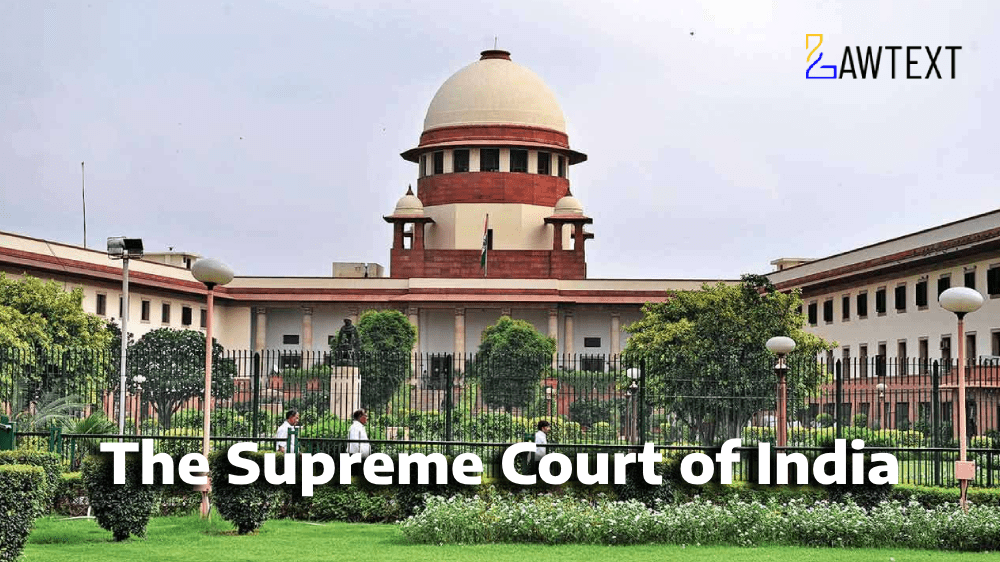"Landmark Judgment on Property Rights and Public Welfare in Mumbai" "Balancing property ownership with the collective good under India's constitutional framework."

CASE NOTE & SUMMARY
The Supreme Court examined whether Chapter VIII-A of the MHADA Act aligns with the principles of Article 39(b) of the Indian Constitution, which aims to distribute material resources for the community's benefit. This raised critical questions on the validity and survival of Article 31C after amendments and the judgment in Minerva Mills. The case thus interprets constitutional provisions on property rights versus public welfare, setting precedents for housing laws in India.
1. Background and Reference:
- Context: The litigation originated from challenges to the MHADA Act, aimed at the repair and redevelopment of aging buildings in Mumbai. Property owners contested that the Act's provisions infringed upon property rights under Articles 14 and 19 of the Constitution.
- Scope of Dispute: The Supreme Court was asked to determine the survival of Article 31C after its partial invalidation in Minerva Mills and the interpretation of Article 39(b) concerning the definition of "material resources of the community."
2. Article 31C - Legal Immunity for State Policies (Pages 6-30)
- Brief History: Article 31C was introduced to provide immunity to laws aimed at fulfilling Directive Principles under Article 39(b) and (c), shielding them from challenges based on Articles 14 and 19.
- Post-Amendment Controversy: The judgment addresses if Article 31C, as amended by the Forty-Second Amendment, was fully repealed in Minerva Mills. The appellants argued that Minerva Mills effectively voided the entirety of Article 31C, while the respondents contended for its revival in its pre-amended form.
- Court's Position: The Court examines previous judgments, establishing that immunity for laws pursuing Article 39(b) and (c) remains valid, reaffirming judicial interpretation.
3. Interpretation of Article 39(b) - Public Resources and Common Good (Pages 31-50)
- Directive Principles: Article 39(b) mandates that resources should be distributed for the common good, raising questions about whether this includes private resources.
- Precedent Analysis: The judgment critically examines past interpretations of Article 39(b) in Sanjeev Coke and Ranganatha Reddy, contrasting views on whether private property can be subsumed under public resources if it serves societal welfare.
- Court’s Interpretation: The judgment ultimately clarifies that private property under specified conditions can be transferred to cooperative societies of residents if deemed to align with Article 39(b)'s objectives, ensuring community welfare.
4. Conclusion - Balancing Rights with Societal Needs (Pages 191-193)
- Legal Outcome: The Court upheld the MHADA Act provisions, concluding they align with Article 39(b) and are protected by Article 31C’s immunity.
- Broader Implication: This judgment reaffirms the state's power to enact welfare-oriented laws impacting private property if aligned with constitutional principles, impacting future housing and redevelopment policies.
Acts and Sections Discussed:
-
Indian Constitution:
- Article 31C: Protects laws aimed at implementing Article 39(b) and (c) from challenges under Articles 14 and 19.
- Article 39(b): Directs the state to ensure the equitable distribution of resources for the public good.
- Article 14 and 19: Fundamental rights concerning equality and protection of individual freedoms.
-
MHADA Act (Maharashtra Housing and Area Development Act, 1976):
- Chapter VIII-A: Provisions for the acquisition and redevelopment of dilapidated buildings for cooperative societies, balancing individual rights with public welfare.
Legal Ratio:
The Court’s ruling establishes that the MHADA Act provisions comply with Article 39(b) by promoting social welfare through equitable resource distribution. Additionally, the judgment clarifies that Article 31C, though partially invalidated, continues to shield certain welfare legislation from constitutional challenges, reinforcing the supremacy of Directive Principles in specified areas.
Subjects:
Property Rights, Constitutional Law, Public Welfare, Housing Development.
Article 31C, Article 39(b), MHADA Act, Mumbai Redevelopment, Directive Principles, Fundamental Rights.
ISSUE OF CONSIDERATION
Property Owners Association & Ors. Versus State of Maharashtra & Ors.
Citation: 2024 LawText (SC) (11) 56
Case Number: Civil Appeal No. 1012 of 2002 With SLP(C) No. 5777 of 1992 With SLP(C) No. 5204 of 1992 With SLP(C) No. 8797 of 1992 With SLP(C) No. 7950 of 1992 With SLP(C) No. 4367 of 1992 With W.P.(C) No. 934 of 1992 With SLP(C) Nos. 6191-6192 of 1992 With SLP(C) No. 6744 of 1993 With SLP(C) No. 2303 of 1995 With SLP(C) No. 13467 of 1995 With W.P.(C) No. 660 of 1998 With W.P.(C) No. 342 of 1999 With W.P.(C) No. 469 of 2000 With W.P.(C) No. 672 of 2000 And With W.P.(C) No. 66 of 2024 CIVIL APPEAL NO.1012 OF 2002 WITH SPECIAL LEAVE PETITION (CIVIL) NO.4367 OF 1992 SPECIAL LEAVE PETITION (CIVIL) NO.5204 OF 1992 SPECIAL LEAVE PETITION (CIVIL) NO.5777 OF 1992 SPECIAL LEAVE PETITION (CIVIL) NOS.6191-6192 OF 1992 SPECIAL LEAVE PETITION (CIVIL) NO.7950 OF 1992 SPECIAL LEAVE PETITION (CIVIL) NO.8797 OF 1992 SPECIAL LEAVE PETITION (CIVIL) NO.6744 OF 1993 SPECIAL LEAVE PETITION (CIVIL) NO.2303 OF 1995 SPECIAL LEAVE PETITION (CIVIL) NO.13467 OF 1995 WRIT PETITION (CIVIL) NO.934 OF 1992 WRIT PETITION (CIVIL) NO.660 OF 1998 WRIT PETITION (CIVIL) NO.342 OF 1999 WRIT PETITION (CIVIL) NO.469 OF 2000 WRIT PETITION (CIVIL) NO.672 OF 2000 WRIT PETITION (CIVIL) NO.66 OF 2024 CIVIL APPEAL NO.1012 OF 2002 WITH SLP(C) No.5777/1992, SLP(C) No.5204/1992, SLP(C) No.8797/1992, SLP(C) No.7950/1992, SLP(C) No.4367/1992, W.P.(C) No.934/1992, SLP(C) No.6191-6192/1992, SLP(C) No.6744/1993, SLP(C) No.2303/1995, SLP(C) No.13467/1995, W.P.(C) No.660/1998, W.P.(C) No.342/1999, W.P.(C) No.469/2000, W.P.(C) No.672/2000 and W.P.(C) No.66/2024
Date of Decision: 2024-11-05
Case Title: Property Owners Association & Ors. Versus State of Maharashtra & Ors.
Before Judge: (B.V. NAGARATHNA J. , SUDHANSHU DHULIA J. )
Appellant: Property Owners Association & Ors.
Respondent: State of Maharashtra & Ors.

